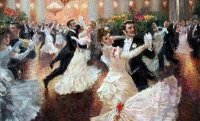Featured Writer
There is an undeniable sense of place in your work. Sometimes it’s physical location and sometimes it’s a kind of placement in a larger scheme of things. How aware are you of that quality? Where does it come from?
This is a great question. Setting and a sense of place has always been incredibly important to me. Setting, the where we are, informs who we are. Now, many poets have written great works without that sense of setting; and I have tried. But to be honest, that just doesn’t work for me. I need to have both feet planted somewhere in order to write well; perhaps that’s why even my sonnets have a strong sense of setting and a “narrative” quality.
This probably comes from reading a lot of fiction. Where fiction writers get it right is so many of them include maps in their books, or like Joyce, they keep everything in one city. Why don’t poets do that? I love maps! Imagine Spoon River Anthology if you knew where every gravestone was; and if you knew what surrounded the cemetery (hell, this has probably been done and I’m just unaware of it). To me, that stuff is terribly important. In fact, I think I might create a map to include with the chapbook I am sending around right now.
You favor the short line. . . not unusual for lyrics. . . but your poems are underscored by narrative. What helps you determine line? How do you think about the distinction between narrative and lyric modes in your poems?
Well, these three poems are just a small sampling of what I write (for better or worse). I like to write in forms, and I also like to write prose poems, etc. But as for these poems, which do have shorter lines, most of that comes out in the revision process.
“Highway 75 Elegy” would be the exception here; It was written as a direct emulation of Catullus’s poem to his dead brother (101), and his style sort of bled into mine. Now, the Catullus poem’s lines are all super long, like 15 syllables or so, but when read they go by so quickly it is almost breathtaking. In any case, that one came out almost fully-formed and required the least revision.
The other two, however, started out as much larger works, both in line length and number of lines. What often happens, as with these two, is I’ll be stuck in the process; things just aren’t working. Then for the hell of it I’ll pretty much re-write the poem, or I’ll even start counting syllables and chop single lines in half just to see how the “new” poem looks. Then, I cut and cut until the poem is a third as long as it was. For some reason, this often leads rapidly to the finished product; ultimately, I think many ‘broken’ poems are good poems that need a better home.
One of your poems is titled “Elegy,” but I see an elegaic thread through all three of these. Tell me what you know about elegy? How conscious are your decisions to frame things through a sense of longing for something that’s gone?
Most of what I know about Elegy comes from my two semesters of Latin, and my hilarious attempts to teach myself ancient Greek. I do know that there is a classical form for writing an elegy (syllable counts, etc,) but I don’t really bother with that. Highway 75 was written for a childhood friend who got drunk one night and crashed his car trying to drive home (he was brilliant but too young for wisdom). It took years before I was ready to write about it, and it wasn’t until I read the Robert Fitzgerald translation that I was truly ready (I encourage you to find an old copy of his collected works).
I actually went to that spot, on 75, and stood out there to get my bearings; part of the effect when I read Catullus is I can almost see him standing in front of his brother’s ashes. So, essentially, that is what I am doing. Whereas most of my poems are full of half-truths and outright lies masquerading as my own life, this one is totally autobiographical.
As far as the other poems are concerned, I’m not conscious of an elegiac tone when I write them, but as I get older death becomes more and more of a regular occurrence. Grandparents, friends, people at school, old friends—when I was a child it was years between funerals sometimes, yet now it is every month or two.
Can you comment on your view of rhythm in free verse poems? To me, you achieve rhythm through the use of commas and the line for phrasing–it all seems deliberate. Do you go on instinct or is there some musical thought behind how these poems unfold?
Again, this comes through revision. Often, when I make a big change to the poem a new sense of rhythm comes out and it is up to me to “hear” it; I will say that I have a musical background (my mom played all through the Midwest before I came along; I’m in a band with my brother and my sister is a music major studying Jazz in New Orleans on an exchange scholarship). We’re not the Bach family or even the Partridge Family but I believe a sense of music, especially the simple knowledge of the difference between time signatures, can help any poet. I mean, the Tennessee Waltz is really a dumb song when you look at the lyrics (and they just repeat in the second verse!) but you put that thing into 3/4 and it is heart-wrenching. And I guess that’s part of what I was saying earlier; sometimes a good poem seems broken and maybe it needs to be put into waltz time, so to speak!
Be sure to read Dan’s poetry, featured in Volume 14 of Emprise Review: At Dad’s House in The Country, Highway 75 Elegy, Out in The Woods
Interviewed by Tracy Youngblom May 1, 2010







